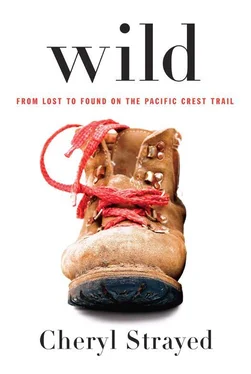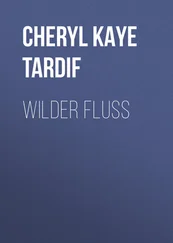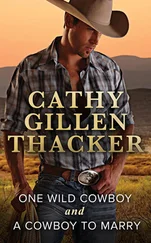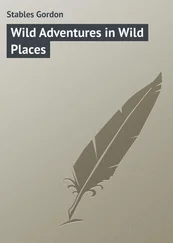Cheryl Strayed - Wild
Здесь есть возможность читать онлайн «Cheryl Strayed - Wild» весь текст электронной книги совершенно бесплатно (целиком полную версию без сокращений). В некоторых случаях можно слушать аудио, скачать через торрент в формате fb2 и присутствует краткое содержание. Год выпуска: 2012, ISBN: 2012, Жанр: Современная проза, на английском языке. Описание произведения, (предисловие) а так же отзывы посетителей доступны на портале библиотеки ЛибКат.
- Название:Wild
- Автор:
- Жанр:
- Год:2012
- ISBN:978-0-307-95765-8
- Рейтинг книги:4 / 5. Голосов: 1
-
Избранное:Добавить в избранное
- Отзывы:
-
Ваша оценка:
- 80
- 1
- 2
- 3
- 4
- 5
Wild: краткое содержание, описание и аннотация
Предлагаем к чтению аннотацию, описание, краткое содержание или предисловие (зависит от того, что написал сам автор книги «Wild»). Если вы не нашли необходимую информацию о книге — напишите в комментариях, мы постараемся отыскать её.
Wild — читать онлайн бесплатно полную книгу (весь текст) целиком
Ниже представлен текст книги, разбитый по страницам. Система сохранения места последней прочитанной страницы, позволяет с удобством читать онлайн бесплатно книгу «Wild», без необходимости каждый раз заново искать на чём Вы остановились. Поставьте закладку, и сможете в любой момент перейти на страницу, на которой закончили чтение.
Интервал:
Закладка:
I had only just begun. I was three weeks into my hike, but everything in me felt altered. I lay in the water as long as I could without breathing, alone in a strange new land, while the actual world all around me hummed on.
9
STAYING FOUND
I’d bypassed. Passed by. I was out of danger now. I’d leapfrogged over the snow. It was clear sailing through the rest of California, I supposed. Then through Oregon to Washington. My new destination was a bridge that crossed the Columbia River, which formed the border between the two states. The Bridge of the Gods. It was 1,008 trail miles away; I’d hiked only 170 so far, but my pace was picking up.
In the morning, Greg and I walked out of Sierra City for a mile and a half along the shoulder of the road until we reached the place where it intersected the PCT, then walked together for a few minutes on the trail before pausing to say goodbye.
“That’s called mountain misery,” I said, pointing at the low green bushes that edged the trail. “Or at least that’s what the guidebook says. Let’s hope it’s not literal.”
“I think it might be,” Greg said, and he was right: the trail would rise nearly three thousand feet over the eight miles ahead. I was braced for the day, Monster loaded down with a week’s worth of food. “Good luck,” he said, his brown eyes meeting mine.
“Good luck to you too.” I pulled him into a hard embrace.
“Stay with it, Cheryl,” he said as he turned to go.
“You too,” I called after him, as if he wouldn’t.
Within ten minutes he was out of sight.
I was excited to be back on the trail, 450 PCT miles north of where I’d been. The snowy peaks and high granite cliffs of the High Sierra were no longer in view, but the trail felt the same to me. In many ways, it looked the same too. For all the endless mountain and desert panoramas I’d seen, it was the sight of the two-foot-wide swath of the trail that was the most familiar, the thing upon which my eyes were almost always trained, looking for roots and branches, snakes and stones. Sometimes the trail was sandy, other times rocky or muddy or pebbly or cushioned with layers upon layers of pine needles. It could be black or brown or gray or blond as butterscotch, but it was always the PCT. Home base.
I walked beneath a forest of pine, oak, and incense cedar, then passed through a stand of Douglas firs as the trail switchbacked up and up, seeing no one all that sunny morning as I ascended, though I could feel Greg’s invisible presence. With each mile that feeling waned, as I imagined him getting farther and farther ahead of me, hiking at his customary blazing pace. The trail passed from the shady forest to an exposed ridge, where I could see the canyon below me for miles, the rocky buttes overhead. By midday I was up above seven thousand feet and the trail grew muddy, though it hadn’t rained in days, and finally, when I rounded a bend, I came upon a field of snow. Or rather, what I took to be a field, which implied there was an end to it. I stood at its edge and searched for Greg’s footprints, but saw none. The snow wasn’t on a slope, just a flat among a sparse forest, which was a good thing, since I didn’t have my ice ax any longer. I’d left it that morning in the PCT hiker free box at the Sierra City post office as Greg and I strolled out of town. I didn’t have the money to mail it back to Lisa’s, much to my regret, given its expense, but I wasn’t willing to carry it either, believing I’d have no use for it from here on out.
I jabbed my ski pole into the snow, skidded onto its icy surface, and began to walk, a feat I achieved only intermittently. In some places I skittered over the top of it; in others, my feet crashed through, sometimes forming potholes halfway up to my knees. Before long, the snow was packed into the ankles of my boots, my lower legs so snowburned it felt as if the flesh had been scraped away with a dull knife.
That worried me less than the fact that I couldn’t see the trail because it was buried beneath the snow. The route seemed apparent enough, I assured myself, holding the pages from my guidebook as I walked, pausing to study each word as I went. After an hour, I stopped, suddenly scared. Was I on the PCT? All the while, I’d been searching for the small metal diamond-shaped PCT markers that were occasionally tacked to trees, but I hadn’t seen any. This wasn’t necessarily reason for alarm. I’d learned that the PCT markers were not to be relied upon. On some stretches they appeared every few miles; on others, I’d hike for days without spotting one.
I pulled the topographical map of this area out of my shorts pocket. When I did, the nickel in my pocket came with it and fell into the snow. I reached for it, bending over unsteadily beneath my pack, but the moment my fingers grazed it, the nickel sank deeper and disappeared. I clawed through the snow looking for it, but it was gone.
Now I only had sixty cents.
I remembered the nickel in Vegas, the one with which I’d played the slots and won sixty dollars. I laughed out loud thinking about it, feeling as if these two nickels were connected, though I couldn’t explain why other than to say the daffy thought came to me as I stood there in the snow that day. Maybe losing the nickel was good luck the same way that the black feather that symbolized the void actually meant something positive. Maybe I wasn’t really in the very midst of the thing I’d just worked so hard to avoid. Maybe around the next bend I’d be in the clear.
I was shivering by now, standing in the snow in my shorts and sweat-drenched T-shirt, but I didn’t dare continue on until I got my bearings. I unfolded the guidebook pages and read what the authors of The Pacific Crest Trail, Volume 1: California had to say about this portion of the trail. “From the trailside ridge, you confront a steady, bush-lined ascent,” it said to describe the place I thought I might have been. “Eventually your trail levels off at an open-forested flat …” I turned in a slow circle, getting a 360-degree view. Was this the open-forested flat? It would seem that the answer would be clear, but it was not. It was only clear that everything was buried in snow.
I reached for my compass, which hung from a cord on the side of my pack near the world’s loudest whistle. I hadn’t used it since the day I was hiking on that road after my first hard week on the trail. I studied it in conjunction with the map and made my best guess about where I might be and walked on, inching forward uncertainly on the snow, alternately skidding across the top or breaking through the surface, my shins and calves growing ever more chafed each time. An hour later I saw a metal diamond that said PACIFIC CREST TRAIL tacked to a snowbound tree, and my body flooded with relief. I still didn’t know precisely where I was, but at least I knew I was on the PCT.
By late afternoon I came to a ridgeline from which I could see down into a deep snow-filled bowl.
“Greg!” I called, to test if he was near. I hadn’t seen a sign of him all day long, but I kept expecting him to appear, hoping the snow would slow him enough that I’d catch him and we could navigate through it together. I heard faint shouts and saw a trio of skiers on an adjoining ridge on the other side of the snowy bowl, close enough to hear, but impossible to reach. They waved their arms in big motions to me and I waved back. They were far enough away and dressed in enough ski gear that I couldn’t make out whether they were male or female.
“Where are we?” I yelled across the snowy expanse.
“What?” I barely heard them yell back.
I repeated the words over and over again— Where are we, Where are we —until my throat grew raw. I knew approximately where I believed myself to be, but I wanted to hear what they’d say, just to be sure. I asked and asked without getting through, so I tried one last time, putting everything I had into it, practically hurling myself off the side of the mountain with the effort, “WHERE ARE WE? ”
Читать дальшеИнтервал:
Закладка:
Похожие книги на «Wild»
Представляем Вашему вниманию похожие книги на «Wild» списком для выбора. Мы отобрали схожую по названию и смыслу литературу в надежде предоставить читателям больше вариантов отыскать новые, интересные, ещё непрочитанные произведения.
Обсуждение, отзывы о книге «Wild» и просто собственные мнения читателей. Оставьте ваши комментарии, напишите, что Вы думаете о произведении, его смысле или главных героях. Укажите что конкретно понравилось, а что нет, и почему Вы так считаете.












